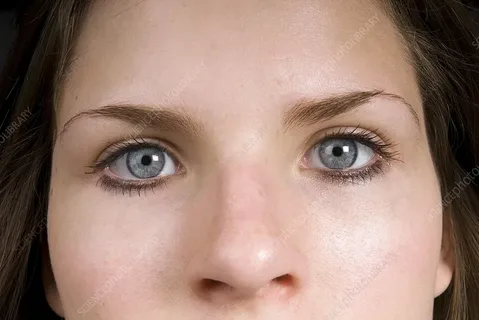
Sleep deprivation affects nearly every system in the body, including the eyes. One subtle but telling indicator of fatigue is a change in pupil size. Pupils react not only to light but also to emotional and physical states. When someone is severely sleep-deprived, changes in pupil size can occur—even in the absence of light changes. So, what do small pupils mean in the context of sleep deprivation?
The Role of Pupils in Eye Function
Pupils are the dark, circular openings in the center of the iris, responsible for regulating the amount of light entering the eye. In dim lighting, pupils dilate to allow more light in; in bright environments, they constrict to protect the retina from excessive exposure. This response is controlled by the autonomic nervous system—specifically, the sympathetic and parasympathetic branches.
However, pupil size isn’t just about light. Emotions like fear or excitement can dilate the pupils, while certain drugs or neurological issues can cause them to constrict. Sleep deprivation, which places stress on the brain and nervous system, can also alter pupil function in significant ways.
How Sleep Deprivation Affects the Nervous System
Sleep is essential for restoring brain function, regulating hormones, and maintaining balance in the autonomic nervous system. When you don’t get enough rest, the body reacts by releasing stress hormones like cortisol. These hormones can disturb the balance between the sympathetic and parasympathetic nervous systems.
Normally, the sympathetic system causes pupils to dilate in preparation for “fight or flight,” while the parasympathetic system causes constriction as part of the “rest and digest” mode. In a well-rested person, these systems work in harmony. But in someone who is sleep-deprived, the brain may struggle to regulate this balance, resulting in unusual pupil behavior—including persistent constriction.
What Do Small Pupils Mean in Terms of Fatigue?
When asking “what do small pupils mean” in the context of sleep loss, the answer is rooted in neurological exhaustion. Fatigue can lead to heightened parasympathetic activity or a reduced sympathetic response. This causes the pupils to stay smaller than usual, even in dim environments.
This phenomenon has been studied in various settings, including among night-shift workers, medical professionals, and students. Research shows that small pupils in sleep-deprived individuals are often accompanied by slower pupil reaction times and reduced variability in size. These findings indicate a diminished capacity of the brain to manage automatic functions properly.
Cognitive Performance and Pupil Size
Another way to interpret “what do small pupils mean” during sleep deprivation is by linking it to cognitive performance. Pupil size has been shown to correlate with alertness and mental workload. When the brain is fatigued, it becomes harder to focus, process information, and react quickly. Smaller pupils are often a physiological sign of this decreased mental efficiency.
For example, in tests requiring sustained attention, well-rested individuals typically show dynamic pupil responses. Sleep-deprived individuals, on the other hand, exhibit less fluctuation in pupil size, with a tendency toward constriction. This suggests the brain is operating in a low-alertness mode, conserving energy due to lack of sleep.
Other Factors That Contribute to Small Pupils
While sleep deprivation can cause small pupils, it’s important to recognize that other factors may also be at play. Certain medications—such as opioids, antipsychotics, or muscle relaxants—can lead to pupil constriction. Neurological disorders like Horner’s syndrome or exposure to specific toxins can have a similar effect.
So if you’re wondering “what do small pupils mean,” it’s important not to jump to conclusions. Sleep deprivation is just one of several possible causes. A comprehensive evaluation by a healthcare provider can help determine the root cause, especially if the symptom is persistent or accompanied by other signs of distress.
Detecting and Managing Sleep Deprivation
Understanding how your eyes react to fatigue can help you monitor your overall health. If you notice that your pupils are smaller than usual—especially if you’re also experiencing irritability, memory issues, or slower reaction times—it may be a sign that you’re not getting enough rest.
Improving sleep hygiene can help normalize pupil behavior and restore cognitive performance. Some key tips include:
- Sticking to a regular sleep schedule
- Limiting caffeine and screen time before bed
- Creating a dark, quiet sleeping environment
- Avoiding late-night stressors and overexertion
If sleep issues persist despite these strategies, it may be time to consult a sleep specialist for further evaluation.
Final Thoughts
So, what do small pupils mean when you’re running on little sleep? In most cases, they signal that your body and brain are under stress. Sleep deprivation disrupts the nervous system’s ability to regulate automatic functions like pupil size, often resulting in noticeable constriction. While this symptom alone isn’t cause for alarm, it can serve as a helpful indicator that your body needs rest.
Paying attention to subtle signs like pupil size might just be the reminder you need to prioritize a full night’s sleep—and give your brain the recovery time it deserves.